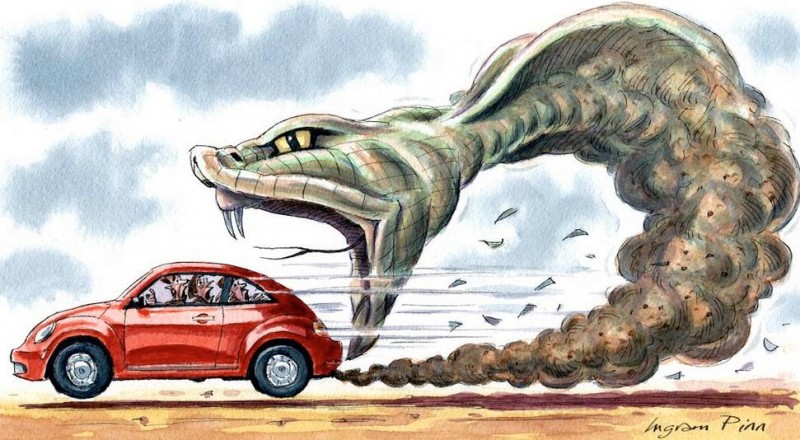Opinion: where does the climate crisis in pop culture go from here?

14 December 2021
A couple of months ago, I managed to get tickets to the Galway Comedy Festival. A group of us went out there for the weekend and we decided to squeeze in a walk along the Flaggy Shore before we headed back to Dublin.
As we parked, I spotted some wind turbines in the distance. I quipped about always being on the job as car doors slammed shut. It got a laugh – and we swiftly moved on.
I think back on that moment often. The longer I cover this beat, the more I can’t unsee it: the climate and biodiversity crisis is ubiquitous. Living in Ireland and in the Global North, I’ve been lucky and incredibly privileged to have only noticed it recently.
No matter where you live these days – you are reminded of what’s unfolding. Here in Ireland, you see flooding and severe storms and you clock wind turbines on the horizon. You see both the consequences and the solutions, often all in the same day.
How severe the ramifications of our environmental crises are depends on where you find yourself in the world and a plethora of other societal factors. How your local area is scaling up to decarbonising is also shaped by where you live.
However, wherever you are, evidence of this mosaic of remedy and disaster abound. You truly can never get away from it completely.
And now this well-documented omnipresence is starting to take shape in one of the main ways we all communicate with each other: our popular culture.
I’ve been intrigued by and previously written about the rise of climate fiction, otherwise known as “cli-fi”. There are true literary titans in this field: including Octavia Butler, Kim Stanley Robinson and Jenny Offill.
Reading fiction that explicitly deals with the climate crisis has helped me unknot a lot of difficult emotions around it. Sitting down with a piece of “cli-fi” feels like sharing a meal with an equally concerned colleague: they have a working knowledge of how high the stakes are and how pervasive and unjust the crisis is. They provide a different way of seeing things and sometimes even forge a path ahead where positive outcomes wait patiently at the final destination.
Their presence serves a different purpose to the cultural trend that grows stronger by the (televised) season: the integration of the climate crisis into everyday plotlines.
There are a number of examples to demonstrate what I mean. I May Destroy You explores the relationship between the climate movement and systemic racism. Sally Rooney’s female characters in Beautiful World, Where Are You? share observations on environmental breakdown. A student urges the world to address the threats bee populations face in Mae Martin’s limited series Feel Good.
None of these works would outrightly advertise themselves as “climate-themed” – which is exactly why we need them.
For the most part, experts have highlighted that the people flocking to explicit “cli-fi” pieces of work are those who are already concerned about the issue – and that’s a great thing to see. As stated above, I’ve found it comforting and community-building in its own right.
But – when it comes to getting more people on board, the discussion has to reach beyond the already-preached-to choir.
And it looks like that is already well on-track. I recently tore my way through Ted Lasso, a show that continues to rack up award nominations as it gears up for a third season. It follows a folksy, midwestern American football coach with minimal familiarity with soccer take over the reins of a Premier League team. It’s uplifting and riddled with great one-liners and has buoyed me through these colder and darker evenings.
I’ll share no spoilers in case you choose to tune in – but a second season plot line brings the injustices of the climate crisis right to the fore and much was written about it when the episode originally aired.
Then there’s the star-studded, bombastic metaphor film for the climate crisis: Adam McKay’s Don’t Look Up. I’ve yet to see it myself and will scribble down my own thoughts once I get a chance, but from everything I’ve read about it so far, I don’t think I’ll be walking away from it disappointed.
The film’s basic premise is that scientists discover a comet hurtling towards earth that threatens to wipe out all life within a six-month time period. The analogy isn’t a carbon copy (excuse the word choice) for the climate crisis – but the parallels are laid bare for all to see.
Both of these above examples are not niche pieces of culture: they have been and will be consumed in the millions. They – to different extents – will reach portions of the population that don’t actively seek out cultural takes on the environmental crises before us.
They will hopefully stay in people’s minds and serve as constant reminders that while you might choose not to look up, our current unjust reality trudges alongside you, regardless of where your gaze lands.
Because no matter where you live – you can’t get away from how this crisis permeates our lives the globe over, to varying degrees.
And if you don’t believe me: try going for a walk and register some whisper of what’s happening. It will probably look different wherever your vantage point is and the consequence you come across might be incredibly subtle to the naked eye.
But whatever you do, make sure you look up. Try to keep your eyes there.
[x_author title=”About the Author”]







